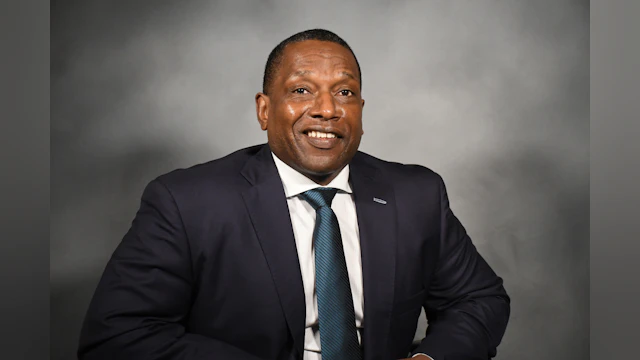Learn more about AFSP's program, L.E.T.S. (Listening, Empathy, Trust, Support) Save Lives: An Introduction to Suicide Prevention for Black and African American Communities, and how to bring it to your community, here.
Each year during the month of February we celebrate Black History Month, an annual celebration of achievements by African Americans and a time for recognizing the leading role of African Americans in U.S. history. But to me, Black History Month is about so much more. Black History Month represents an opportunity to rewrite and reclaim the narrative. The historical narrative has often excluded positive contributions by people who look like me. And the narrative among the Black community has often been one of struggle; a struggle that has too often felt like a burden unevenly carried by my marginalized community.
But for one month, the nation focuses on the accomplishments of Black people in American history. For one month, we have an opportunity to be more inclusive and focus not only on what is in the history books, but what is not. To me, Black History Month is an opportunity to ask, “What if?” What if we did not have to view Black History through the lens of historical adversity or stigma? What if history was inclusive of the contributions of all people, every month? And what if we took the opportunity, not only to change the historical narrative, but to chart a path toward rewriting a new narrative, a narrative of saving lives and bringing hope to all communities.
As a child growing up in rural eastern North Carolina, I do not recall anyone in my home or my community mentioning suicide unless it was in the context of suicide being a “white people problem.” The narrative handed down to me by my community was that Black people do not die by suicide, or even consider suicide because we are “strong and resilient.” That narrative was wrong.
As a mental health professional, I have sat with bereaved Black mothers and fathers who have lost children to suicide. I have counseled Black men, women and children who have battled suicidal thoughts, or are suicide attempt survivors, and I have attended more than my share of funerals of my Black and African American brothers and sisters lost to suicide. Clearly suicide does not discriminate.
My community formed a false narrative, in part, because we did not see interventions or programs that spoke to the Black experience as it pertains to suicidality. In short, I did not see programs that spoke to, or about, people who looked like me. It felt as though we were not the target audience. In the interim, suicide rates in the Black and African American community have increased, especially among younger Black Americans. The age group with the highest rate of suicide in the Black community is between the ages of 25 and 34, and suicide is the leading cause of death for Black females ages 12 to 14. The time has come to change the narrative. The key to doing so is by creating resources that speak to the Black experience, including addressing the fear and stigma that accompanies the conversation, and by making these resources available in communities where Black and African American people live, work, play, and pray. We need to communicate to Black and African American communities that suicide is a public health issue that impacts every race, culture, and ethnicity; that it is preventable; and that the key to combatting suicide is learning the risks and signs that someone may be considering suicide.
Changing the narrative, providing hope, and saving lives was the impetus behind the creation of the new education program from the American Foundation for Suicide Prevention (AFSP): L.E.T.S. Save Lives (Listening, Empathy, Trust, Support): An Introduction to Suicide Prevention for Black and African American Communities. The program was designed by an advisory committee convened by AFSP consisting of Black and African American individuals representing those with lived experience, suicide prevention researchers, mental health professionals, and administrators. The advisory committee came together to create a program that would help attendees understand the scope of suicide among the Black and African American population, and recognize that suicide does impact our community. The training acknowledges the racial and systemic factors that impact suicide in Black and African American communities, while teaching participants how to recognize warning signs that someone is experiencing a suicidal crisis, and get help for that person.
L.E.T.S. Save Lives is an effort to help normalize the conversation regarding suicide in the Black and African American community. It is a reminder that the danger of losing hope and social connection is not exclusive to any one race or culture, and neither is the opportunity to create pathways to restore hope. Created with the support and resources of AFSP, L.E.T.S. Save Lives moves beyond the traditional definition of “access” as simply being about providing physical proximity to more of the same “one size fits all” interventions. It is about recognizing that access should mean providing resources that are culturally relevant, relatable to my lived experience, and most important, be resources I am willing to utilize.
By no means is this program “the answer” to eradicating suicide in the Black and African American community. It is, however, a recognition that if we are to truly get “upstream” in terms of suicide prevention and awareness, we need to create resources that consider the nuances of race, culture, and ethnicity. L.E.T.S. Save Lives is one piece of a narrative that suicide prevention is about saving “all” lives. It is what happens when we move beyond only focusing on history, and begin to truly ask the question, “What if?”
